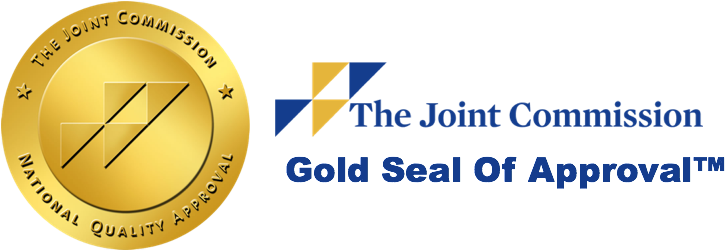Substance use disorder (SUD) affects mental health in several ways. Many people turn to drugs or alcohol as a way to cope with undiagnosed mental health conditions and become addicted in the process. Yet, addiction can also be the catalyst for mental health disorders. Substances change the brain causing it to adapt to manufactured chemicals, thus changing how the brain communicates with the body.
Everyone wants to feel good. Pleasure seeking is how the brain reinforces positive habits and rituals like eating, sex, and social interactions. Normally the brain provides natural rewards that give off pleasant sensations, and that small reward stimulates the brain to repeat these behaviors. Unfortunately, when substances are involved, this perpetuates a cycle of unhealthy habits. Chronic substance use interferes and hijacks healthy sensations, making substance-seeking behaviors the focal point of an individual’s life.
Co-occurring Disorders
A co-occurring disorder is when SUD and a mental health disorder occur simultaneously. The best approach for treating co-occurring disorders is through dual diagnosis treatment, which addresses both conditions at the same time rather than independently of one another.
Depression Symptoms
Depression changes how a person views daily life. It can be a dark shroud over everything, and SUD can make healing and basic functions even more challenging. Normally, dopamine and serotonin work together to boost mood while soothing negative thoughts and impulses and lowering negative motivations. For those struggling with depression, this imbalance leads to negative thoughts and overall well-being.
There are several types of depression, and symptoms vary by person. Some common symptoms include:
- Feelings of emptiness or hopelessness
- Trouble concentrating
- Changes in appetite
- Lack of energy or fatigue
- Difficulty sleeping or oversleeping
- Loss of interest in hobbies that were once enjoyable
- Weight fluctuations
- Suicide attempts or suicidal ideation
Depression can occur for a number of reasons, including genetics, substance misuse and abuse, certain conditions, trauma, and as a side effect of medications. Being aware of the risk factors and the signs to look for will increase the awareness of depression.
It is important to remember that a healthy basal ganglia releases natural pleasure with a trickle of neurotransmitters. Although, when substances wreak havoc on the brain — a brain that already struggles with depression — it loses its ability to produce them naturally. This leaves the individual seeking rewards elsewhere until substances become the brain’s top priority, regardless of the negative impacts it has on their life.
Anxiety Symptoms
The extended amygdala is part of the brain that deals with stress, anxiety, and uncomfortable feelings. Dopamine and serotonin soothe anxiety and help individuals overcome stress in everyday life. Those with anxiety often deal with unhealthy learned survival skills and even irrational fears.
Similar to depression, there are several types of anxiety disorders with an array of symptoms, ranges, and triggers. The most commonly reported symptoms of anxiety include:
- Restlessness or irritability
- Difficulty focusing
- Fatigue without exertion
- A racing heartbeat
- Feelings of doom
- Increase in the fight-or-flight response
- Digestive issues or stomachaches
- Fear of specific places, people, or things
Anxiety can surface as a result of trauma, genetics, undiagnosed health conditions like thyroid or heart disease, or caffeine and other substances. When healing from anxiety and substance use disorder, the brain has to relearn how to cope naturally. Depending on the individual, trauma-informed care paired with medication to prevent overstimulation may be the most effective treatment plan. Additionally, activities like journaling and exercise can also promote physical and mental well-being.
Feelings of Shame and Guilt
Guilt and shame are common emotions that stem from active addiction. Many people struggle with processing their actions and mistakes made while under the influence of drugs or alcohol. This makes it even more challenging to overcome the distressing symptoms of depression and anxiety, which only further feeds the addiction.
Harbored shame and guilt can emerge through your actions, including:
- Unhealthy and unstable relationships
- Emotional outbursts
- Overspending or lack of self-control
- Increased substance use
So, how can someone take steps toward healing from their past and rebuild a foundation for a healthy future?
#1. Seek Forgiveness
If an individual has wronged someone in the past by stealing, lying, or cheating, for example, they must seek forgiveness from them, but only if communication does not jeopardize the status quo. If the relationship is repairable, plan a detailed apology, and deliver it in person or in writing. This act, regardless of the outcome, will foster self-forgiveness.
#2. Give Yourself Grace
All individuals are bound to make mistakes. Individuals must be patient with themselves and commit to not making the same mistakes again.
#3. Seek Treatment
Co-occurring disorders require treatment for both conditions simultaneously. Individuals cannot heal from one condition without addressing the other. The Phoenix Recovery Center, located in Utah, is the ideal environment for this level of healing.
Get Help From the Phoenix
Accurate diagnoses and effective treatment of co-occurring disorders are vital to recovery. It can be easy to overlook underlying mental health conditions or shrug them off as personality traits. However, self-medicating your symptoms takes away from your overall physical and mental well-being. At The Phoenix Recovery Center, we understand that taking the first step toward recovery can be scary and intimidating, but know that you are not alone. Through trauma-informed care, you can rediscover life through a new lens with new coping skills to prevent relapse and mental distress in the future. If you suspect you or a loved one might be struggling with mental health and substance abuse, don’t wait to seek help. Call us today at (801) 438-3185 to begin repairing the damage from active addiction and debilitating mental health symptoms. The path toward recovery starts with a call.







